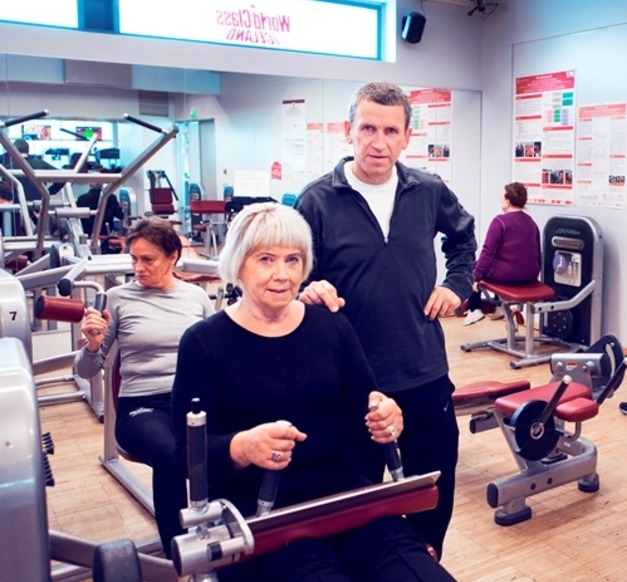Janus Guðlaugsson, Assistant Professor of Sport Studies and Doctoral Student
How can we ensure that the growing population of senior citizens in Iceland are in good health as long as possible and can function in every-day-life? Some might respond with exercise, which is indeed the subject of Janus Guðlaugsson, Assistant Professor of Sport Studies and Doctoral Student. He studied the effects of a six month varied physical and health training on mobility, endurance, physique, quality of life and general health factors in the elderly, both short- and long term.
Guðlaugsson’s interest in the subject was sparked in his BS studies in Copenhagen. “The idea then evolved and became the focus of my master thesis and I got good experience of working with this age group, both of organizing training and studying the effect of said training,” says Guðlaugsson. After encouragement from colleagues at both the School of Education and Medicine he decided to continue his research in his doctoral studies under the supervision of Erlingur S. Jóhannsson and other specialists in geriatrics both in Iceland and in the United States.
Janus Guðlaugsson
They show that a balanced training had positive effects on mobility, well-being and lifestyle in this age group. Results also indicate that both genders reacted similarly to increased physical training and benefited for up to 12 months from it. Such results is rare in research on this age group

The study covered the effects of six months training among a large group of senior Icelanders. Participants were aged 71 to 90; a large group came from a research group for the elderly at the Icelandic Heart Association but also from the South of Iceland. The research group and the control group were monitored with measurements, six and twelve months after the intervention was completed.
Guðlaugsson and his collaborators have already published three science articles based on the results of the study. “,” says Guðlaugsson. He adds that the results show that physical training, nutrition counselling and general education on health related issues and aging had positive effects on physique and risk factor for heart and vascular diseases.
Firstly, Guðlaugsson points out that the results of the study reveal that it is possible to have a positive effect on the age process, despite growing age. “Secondly, the results also show that the participants maintain the positive changes after the intervention for a longer period of time than in comparable studies. Thirdly, it can be assumed that systematic physical training impact the tasks of everyday life of senior citizens, and may reduce pressures on the health care system and thus save costs. Lastly, the results give grounds for public health authorities to consider incorporating systematic physical training for the elderly into daily health care,” says Guðlaugsson.
Supervisor: Erlingur S. Jóhannsson, Professor at the Faculty of Sport, Leisure Studies and Social Education


